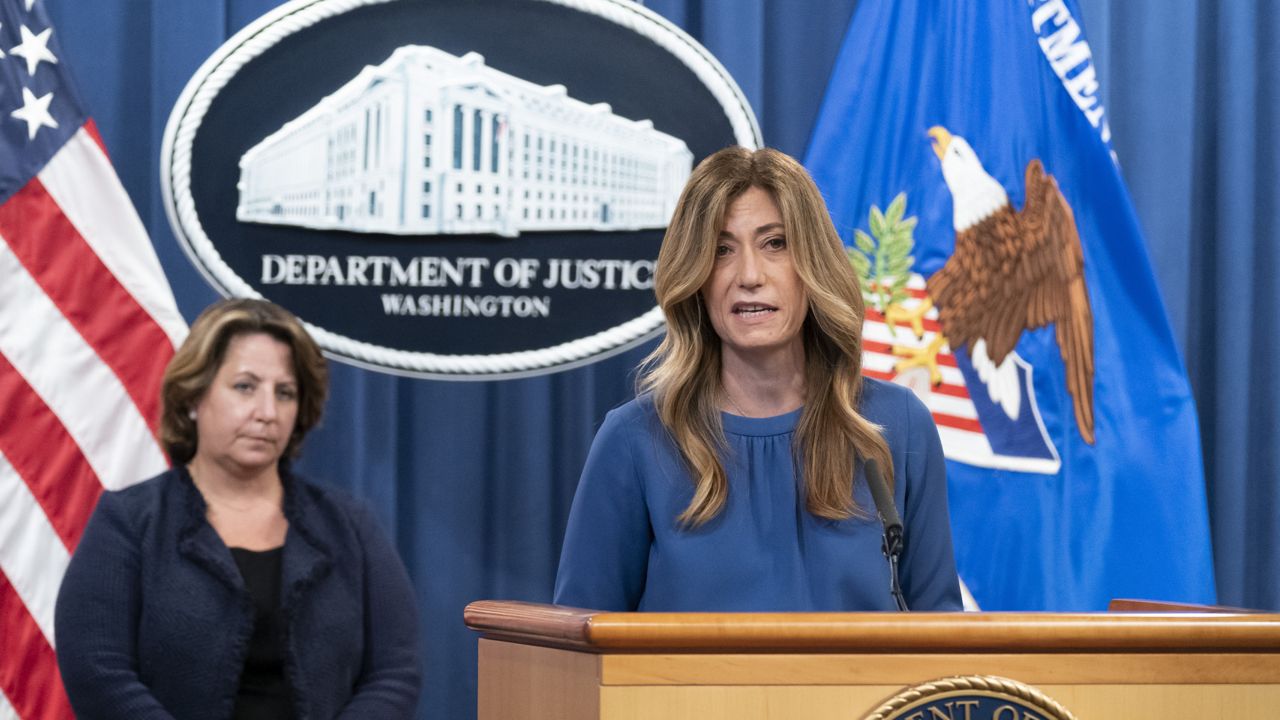Federal officials seized around 1.8 million fake prescription pills and arrested 810 people as part of a two-month effort to combat the rise in fentanyl-laced pills across the country, the Department of Justice announced Thursday.
The U.S. Drug Enforcement Administration launched the national effort on Aug. 3 to identify fentanyl-laced pills and powders and to arrest those responsible for their manufacture and sale.
Fentanyl is a synthetic opioid akin to morphine, but can be up to 100 times more potent.
The deadly compound was found in the vast majority of the pills seized during the operation — enough to kill over 700,000 Americans, officials said.
“During the past eight weeks, DEA has targeted the criminal drug networks flooding the U.S. with deadly, fentanyl-laced fake pills,” DEA administrator Anne Milgram wrote in a statement. “DEA remains steadfast in its commitment [to] reduce drug-related violence and overdose deaths by dismantling the violent, criminal drug distribution networks across the United States.”
The DOJ blamed the rise in counterfeit pills on “Mexican criminal drug networks [...] mass-producing illicit fentanyl and fentanyl-laced fake pills, using chemicals sourced largely from China.”
The announcement came on the heels of an urgent public safety alert issued by the DEA on Monday, which warned Americans about the dramatic increase in fake prescription pills containing lethal amounts of either fentanyl or methamphetamines.
The counterfeit pills are often designed to look like prescription opioids, including oxycodone, hydrocodone, alprazolam or stimulants like medications for ADHD. But unlike medications prescribed by a pharmacist, the counterfeit pills can be purchased on social media and e-commerce sites, making them readily available for children, teens, or those without a legitimate prescription.
The 1.8 million pills confiscated as part of the DOJ’s recent operation added to the 9.5 million-plus already seized by officials this year, a higher number than the amount of fake prescription pills seized in the previous two years combined.
Milgram has called the issue a "national crisis,” saying social media companies like Instagram, TikTok and Snapchat have provided an all-too-easy connection between drug dealers and young adults.
Deputy Attorney General Lisa Monaco doubled down on Milgram’s comments during an address on Thursday, saying in part: “The pervasiveness of synthetic opioids, the low cost, and the way criminal drug networks disguise them as legitimate prescription pills really can make them particularly dangerous to public safety.”
“Counterfeit pills have been identified in every state in this country,” she added. “They are being sold in inner cities, suburbs and rural communities. They are being sold over the internet and on social media platforms like Facebook Marketplace or Snapchat, and they are being marketed to teenagers.”
The amount of fentanyl-laced pills in the U.S. has grown by more than 430% since 2019, the last year for which data is available from the U.S. Centers for Disease Control and Prevention.
The amount of accidental drug overdose deaths have also increased in recent years. According to the CDC, from 2013 to 2019, the rate of deaths involving non-methadone synthetic opioids — like fentanyl — increased 1,040%.
While amphetamines are becoming increasingly common in counterfeit pills, fentanyl is still the “primary driver of this alarming increase in overdose deaths,” per the DEA.
Monday’s warning was the first issued by the DEA in nearly six years. The last time the agency issued an urgent public health notice was in 2015, when it warned of a sharp increase in overdose deaths due to fentanyl-laced heroin.
The DEA has launched a new campaign to address the recent spike in laced fake pills called “One Pill Can Kill,” which helps individuals differentiate between legitimate or counterfeit pills including Oxycodone (prescribed as OxyContin, Tylox and Percodan), Alprazolam (prescribed as Valium, Xanax, Restoril, Ativan and Klonopin) and Amphetamines (prescribed as Adderall, Concerta, Dexedrine, Focalin, Metadate, Methylin and Ritalin).
But the DEA maintains the safest way to avoid a fentanyl or meth-laced pill is to only consume those prescribed to you by a doctor or medical professional.
“The only safe medications are ones prescribed by a trusted medical professional and dispensed by a licensed pharmacist,” the agency says in part.



